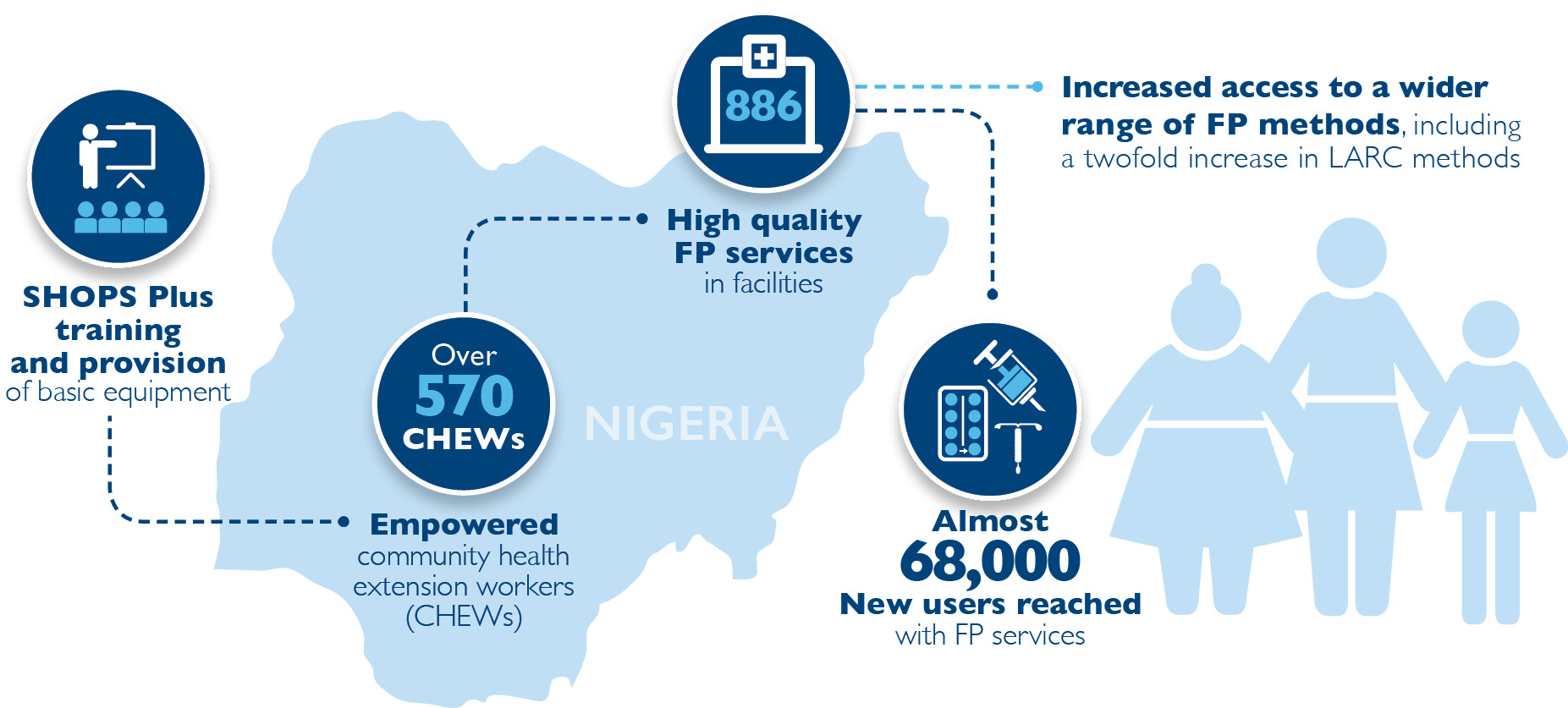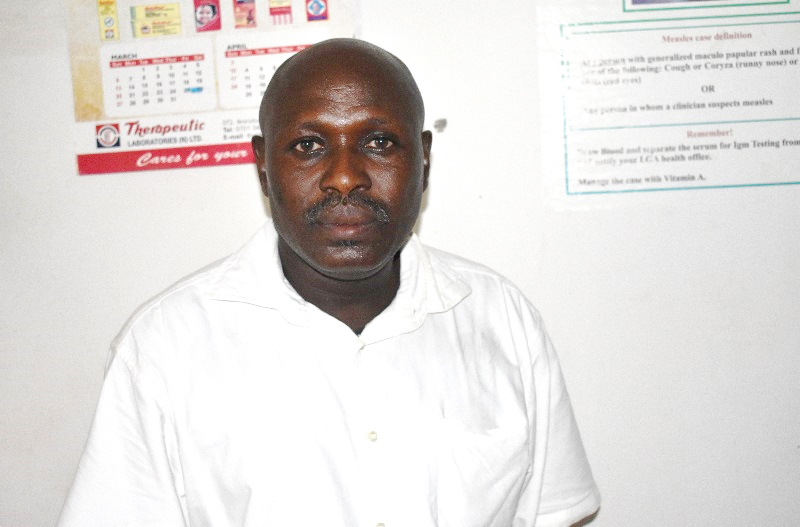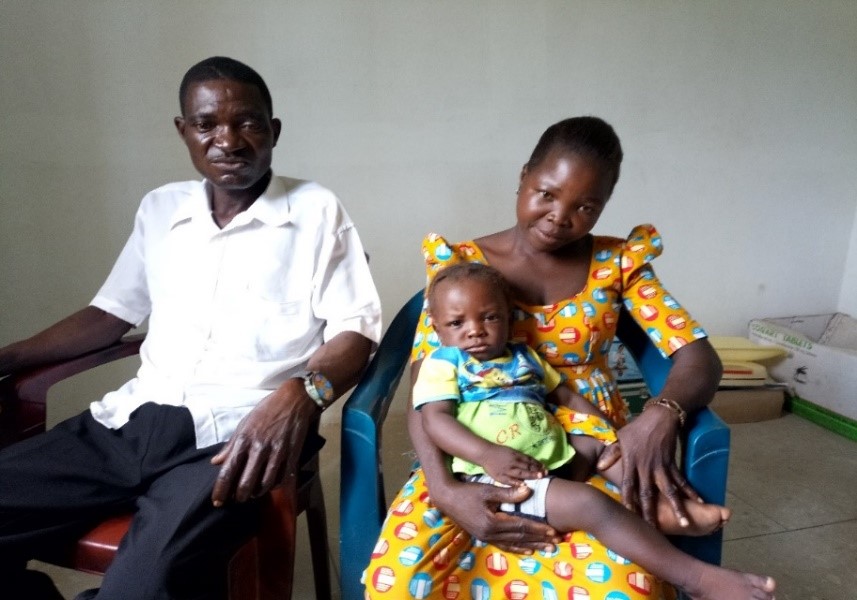Improving access to modern methods of family planning in Plateau State

Since the introduction of a new Task Shifting Task Sharing policy in Nigeria, which allows community health extension workers to deliver family planning services, SHOPS Plus has trained over 388 providers in Plateau state.
After training, the providers receive starter kits with family planning service delivery tools and continue refining their skills during monthly and quarterly supportive supervision visits by project staff and representatives from the local government. When providers have successfully inserted five implants and five IUDs under observation by a trainer, they are certified as being able to safely provide long-acting reversible contraceptive services according to standards.
“They [SHOPS Plus] have done well in the area of training,” says Bakyil Zakka, director of nursing services at the Plateau State Hospital Management Board. “They not only train, but also follow up those trained to ensure they attain proficiency.”
To date, 198 trained providers have received certification in Plateau. As a result, 30,946 women have become new family planning users, and family planning services are available in all 17 of the state’s local government areas. The graphic below shows the numbers for program facilities in four states.

Here is a snapshot of the impact of training from two perspectives: a provider and a client.
“The trainings helped to improve my skills, knowledge, and attitude.”

If you want to find Dongnda Philip, look no further than the family planning room at his community health clinic. This is the private space where the community health extension worker helps couples seeking information and services. Community health workers are often the only available provider in rural areas.
Philip, who has worked in Plateau for over 22 years, says that women in his community are often solely responsible for child care and struggle to meet all their children’s needs, and many people want a smaller family that they can provide for. In a country where 19 percent of women have an unmet need for family planning, the SHOPS Plus team is improving access to modern family planning services, especially in remote areas within the state.
According to Philip, many people did not use family planning in part due to the expense of having to travel and pay for the services. With the training he received from SHOPS Plus, Philip is now able to confidently provide a wide range of family planning methods, including long-acting reversible methods.
“Prior to the SHOPS Plus training, I did not know how to insert or remove implants and IUDs,” Philip explains. “The trainings helped to improve my skills, knowledge, and attitude.”
“Caring for more children would be difficult.”

For John Wuchama Kassam, a 41-year-old farmer in Kanke, Plateau, providing food, shelter, and education for his seven children is a challenge.
“My parents could not afford to send me to school after I completed my primary education, so I have no other special skills and basically no source of income,” Kassam says. “I am quite content with our family size. Caring for more children would be difficult for my wife and me.”
Family planning services, now available near Kassam and his wife, have made it possible for them to keep their family the size the way they want it.
Learn more about our work in Nigeria, family planning, and provider quality.